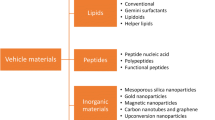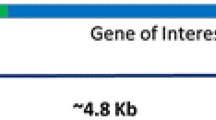Abstract
It is essential for the improvement of adoptive cell therapies to generate efficiently large populations of human primary T cells that reliably express a suicide gene conferring drug sensitivity, such as herpes simplex virus thymidine kinase (HSVtk). We show here that an optimized dicistronic vector containing the encephalomyocarditis virus (EMCV) internal ribosomal entry site (IRES) is functional in human primary T lymphocytes that bear on average one integrated vector copy per cell. We demonstrate reliable coexpression of the marker NTP, an inactive mutant of the human low-affinity nerve growth factor receptor, and HSVtk. In the dicistronic vector NIT, NTP is expressed as a cap-dependent marker and HSVtk as a nonselectable IRES-dependent gene. Cell-surface expression of NTP is sufficient to allow for the efficient and rapid enrichment of the transduced cells to high purity. Of these purified lymphocytes, 97 ± 4% and 92 ± 6% are selectively eliminated when cultured in the presence of 1.0 or 0.1 μM ganciclovir, respectively, establishing that the EMCV IRES ensures efficient and sufficient expression of two genes in human primary T cells.
Similar content being viewed by others
Author information
Authors and Affiliations
Rights and permissions
About this article
Cite this article
Gallardo, H., Tan, C. & Sadelain, M. The internal ribosomal entry site of the encephalomyocarditis virus enables reliable coexpression of two transgenes in human primary T lymphocytes. Gene Ther 4, 1115–1119 (1997). https://doi.org/10.1038/sj.gt.3300506
Received:
Accepted:
Issue Date:
DOI: https://doi.org/10.1038/sj.gt.3300506
- Springer Nature Limited
Keywords
This article is cited by
-
Long-term labeling and imaging of synaptically connected neuronal networks in vivo using double-deletion-mutant rabies viruses
Nature Neuroscience (2024)
-
Targeting a CAR to the TRAC locus with CRISPR/Cas9 enhances tumour rejection
Nature (2017)
-
Cell Fate Control Gene Therapy Based on Engineered Variants of Human Deoxycytidine Kinase
Molecular Therapy (2012)
-
In vitro and in vivo comparison of viral and cellular internal ribosome entry sites for bicistronic vector expression
Gene Therapy (2011)
-
Quantitative analysis of clinically relevant mutations occurring in lymphoid cells harboring γ-retrovirus-encoded hsvtk suicide genes
Gene Therapy (2008)




